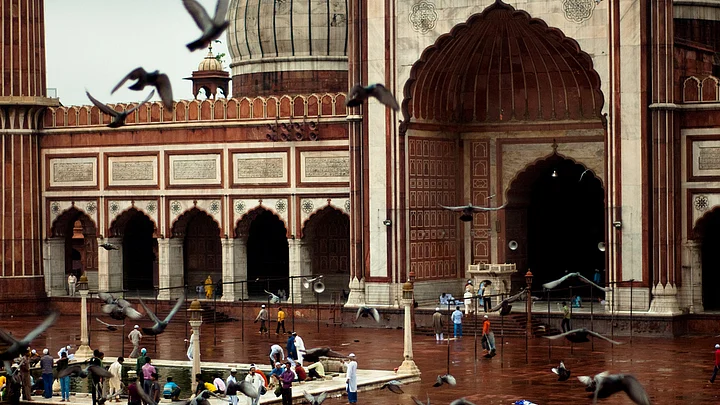‘Ramzan’ is becoming ‘Ramadan’ and ‘Khuda Hafiz’ is being replaced by ‘Allah Hafiz’.
These are only two examples of how centuries old Persian-influenced Muslim culture in India is slowly moving closer to a Saudi brand of Islam that is inspired by the desert Wahabi tradition.
Proponents of the “they’re just words” argument often state that using one term instead of another doesn’t pose a significant threat to a culture or demonstrate a trend of any kind. However, it is difficult to argue against the fact that language limits and, simultaneously, enhances a society’s capacity to comprehend and express ideas and beliefs. Thus, language is, arguably, one of the most important social descriptors of an entire culture.
In this context, a shift in the language patterns of the second most populous demographic group in India warrants attention.
Arabisation
The Arab origins of Islam often create the illusion that the purest form of the religion is one that overlaps with Arab culture and traditions. But Islam is no longer restricted to the desert region. It is a religious belief that is practiced by people across the world and this, inevitably, led to the evolution of unique linguistic features that were culturally and geographically influenced.
South Asia is no different. The Islamic tradition in the region is syncretic and has drawn from the cultural context in which it developed. At the same time, it influenced the region’s population creating a unique and comfortable custom that was secure in its usage of the word “Khuda” instead of the more specific “Allah”. In the Arab-influenced brand of Islam, God can only have an Arabic name but “Khuda” is a Persian word so it can mean any god that the speaker may wish to refer to.
India’s Arabic Influence
India’s Islamic tradition has, historically, been influenced by Persian cultural patterns. Muslims in the Indian subcontinent have traditionally used language that has been heavily influenced by Farsi and Urdu. But, the idea of a universally ‘correct’ Islam, that is essentially Arabic, is pervading the Muslim narrative in the region.
Indian Muslims, especially from the south Indian states, who return from long stints in Saudi Arabia for work or education, bring back Wahabi ideas with them. The rigidity of the Wahabi practice then gets passed on to friends and family under the garb of ‘true’ Islamic practice.
India Isn’t Alone
The movement to exert the idea of a “pure” and universal Islam has also struck the ‘land of the pure’ - Pakistan. The shift is visible in names as well. For instance, former Pakistani cricketer, Inzamam-ul-Haq’s name has an Arabic influence as does his son’s - Ibtasam-ul-Haq. Names from the subcontinent are usually based in Urdu with a Persian-influence like Danish, Wasim and Imran.
While the trend is still in its infancy in India, Pakistan has seen a surge of Arabisation. Saudi Arabia was among the first countries to support Pakistan during the partition in 1947 and it continues to consider the latter its ‘brother’. The Saudis, thus, enjoy heavy influence, not only on Pakistan’s economy but also on the country’s culture.
The emergence of vehicle registration plates with the name ‘Al Bakistan’ in Pakistan is the perfect example of the Arab influence. South Asian languages use the sound ‘pa’ while in Arabic, the sound is usually replaced with a ‘ba’.
